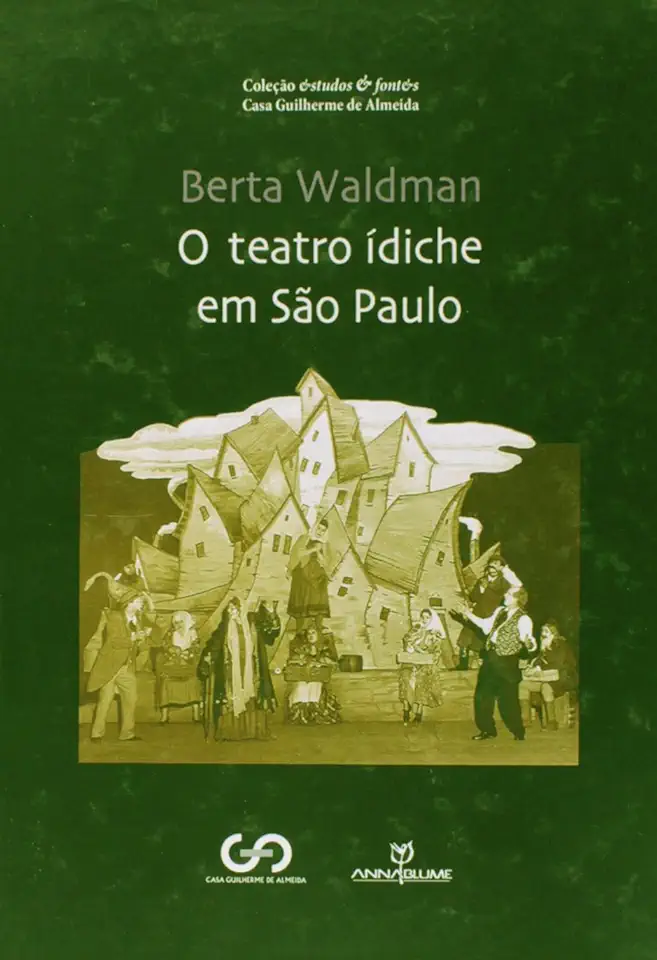
The Yiddish Theatre in São Paulo - Berta Waldman
The Yiddish Theatre in São Paulo: A Vibrant Cultural Legacy
A Thriving Cultural Hub
In the bustling city of São Paulo, Brazil, a vibrant Jewish community flourished during the early 20th century. At the heart of this community was the Yiddish theatre, a remarkable phenomenon that brought together talented actors, passionate playwrights, and enthusiastic audiences. Berta Waldman's meticulously researched book, "The Yiddish Theatre in São Paulo," offers a comprehensive exploration of this extraordinary cultural legacy, shedding light on its origins, development, and profound impact on the city's cultural landscape.
A Journey Through Time
Waldman takes readers on a captivating journey through time, tracing the roots of the Yiddish theatre in São Paulo back to the late 19th century when Jewish immigrants from Eastern Europe began arriving in Brazil in large numbers. These immigrants brought with them their rich cultural heritage, including a deep love for the Yiddish language and a passion for the performing arts.
A Flourishing Theatrical Scene
As the Jewish community in São Paulo grew, so did the demand for Yiddish theatre. By the 1920s, the city boasted a thriving theatrical scene, with numerous Yiddish theatres presenting a diverse range of plays, from comedies and dramas to musicals and operettas. These theatres became hubs of cultural exchange, where Jewish immigrants could connect with their heritage, share their experiences, and celebrate their identity.
Notable Figures and Iconic Performances
Waldman dedicates a significant portion of her book to profiling the prominent figures who shaped the Yiddish theatre in São Paulo. She introduces readers to renowned actors, directors, playwrights, and composers who left an indelible mark on the city's cultural history. Among these luminaries are Jacob Ben-Ami, a charismatic actor who went on to achieve international fame; playwright David Bergelson, whose works explored the complexities of Jewish life in Brazil; and composer Abraham Goldfaden, whose operettas captivated audiences with their infectious melodies.
A Reflection of Jewish Identity
The Yiddish theatre in São Paulo was not merely a form of entertainment; it was a powerful reflection of Jewish identity and a means of preserving cultural traditions in a new and unfamiliar land. Waldman delves into the themes and motifs that permeated Yiddish plays, highlighting their exploration of Jewish history, immigration, assimilation, and the search for a sense of belonging.
A Legacy that Endures
While the Yiddish theatre in São Paulo eventually declined due to various factors, including the assimilation of Jewish immigrants and the rise of other forms of entertainment, its legacy continues to resonate. Waldman concludes her book by examining the lasting impact of the Yiddish theatre on the city's cultural fabric and its enduring significance as a testament to the resilience and creativity of the Jewish community.
A Must-Read for Cultural Enthusiasts
"The Yiddish Theatre in São Paulo" is a captivating and meticulously researched book that offers a fascinating glimpse into a vibrant chapter of cultural history. Berta Waldman's engaging narrative, coupled with her extensive knowledge of the subject, makes this book a must-read for anyone interested in Jewish culture, theatre history, and the rich tapestry of immigrant experiences in Brazil.
Enjoyed the summary? Discover all the details and take your reading to the next level — [click here to view the book on Amazon!]